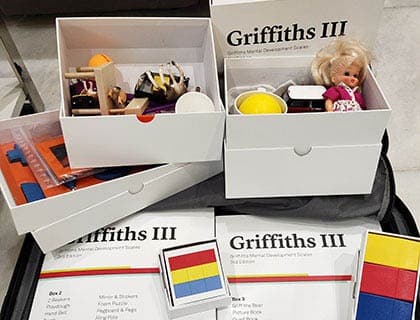Diverse Psychological Assessment Tools are used separately and in combination to assess the behavior, personality and capabilities of individuals and to understand their specific needs based on which the right intervention is provided.
Psychological Assessment Tools:
1. Wechsler Preschool and Primary Intelligence Scale – WPPSI-III
The Wechsler Preschool and Primary Scale of Intelligence – Third Edition (WPPSI-III) is an intelligence test for children, ages 2 years 6 months through 7 years 3 months.
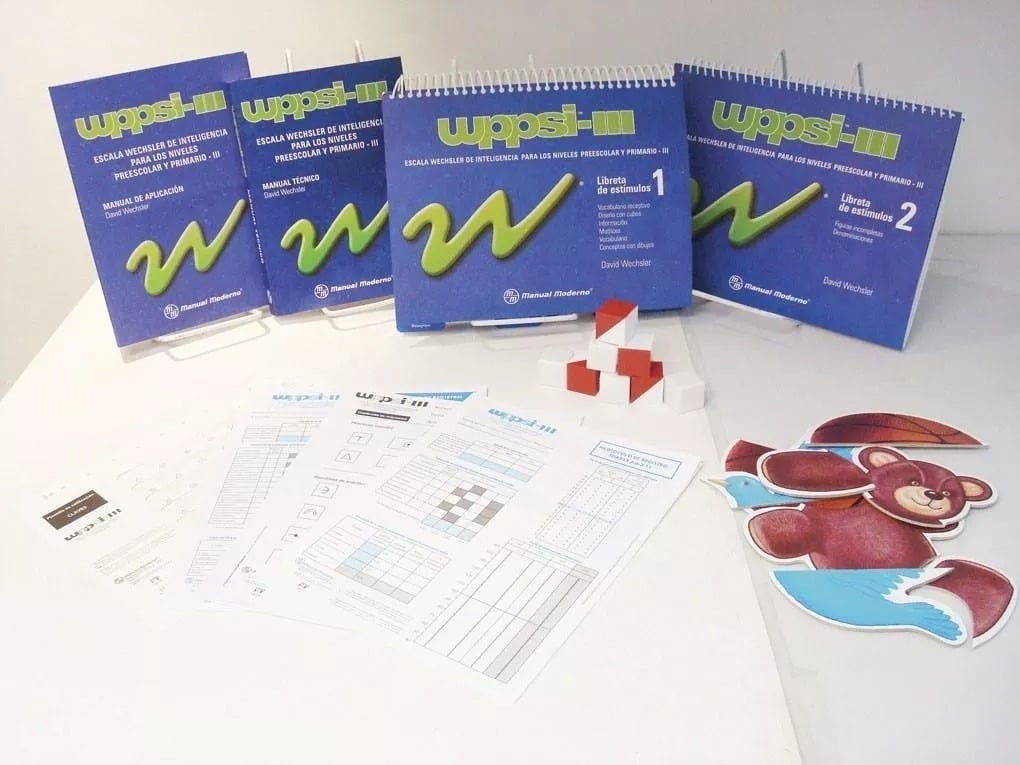
2. Wechsler Intelligence Scale for Children- WISC-V
The Wechsler Intelligence Scale for Children (WISC-V) is an IQ test designed to measure intelligence and cognitive ability of children between the age of 6-16.
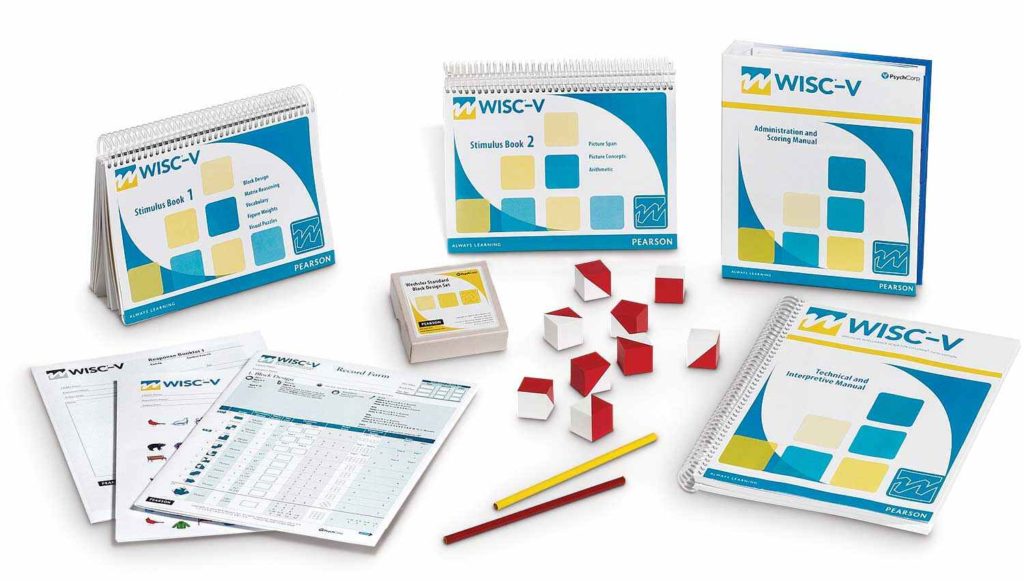
3. Wechsler Adult Intelligence Scale- WAIS-IV
The Wechsler Adult Intelligence Scale (WAIS) is an IQ test designed to measure intelligence and cognitive ability in adults and older adolescents.
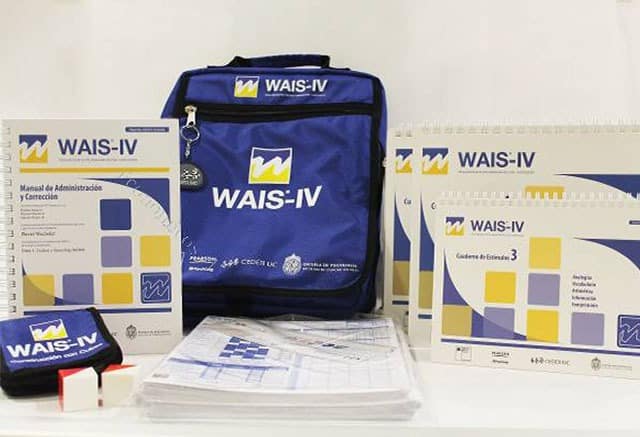
4. Wechsler Individual Achievement Test – WIAT-II
The Wechsler Individual Achievement Test Second Edition (WIAT-II; Wechsler, 2005) assesses the academic achievement of children, adolescents, college students and adults, aged 4 through 85. The test enables the assessment of a broad range of academics skills or only a particular area of need.

5. Behaviour Assessment System fo Children (Parents /Teacher Rating) – (BASC-II)
The BASC-2 is used to assess behaviour and emotions in children and adolescents and consists of the Teacher Rating Scales (TRS), Parent Rating Scales (PRS), Self-Report of Personality (SRP), Student Observation System (SOS), and Structured Developmental History (SDH).
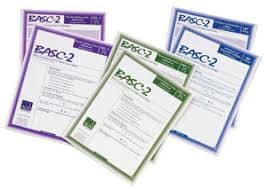
6. Vineland Adaptive Behavior Scales- VABS-II
The Vineland Adaptive Behavior Scales were designed to address adaptive behavior, or the personal and social skills necessary for everyday independent living across the life span (birth–90 years).

7. Adaptive Behavior Assessment System- ABAS-II
The Adaptive Behavior Assessment System is a reliable, valid, and norms-based questionnaire assessment of adaptive behavior, or the personal and social skills necessary for everyday independent living. Because children and adults with autism spectrum disorders often struggle with practical independent functioning and effective interactions with others, the assessment of adaptive behavior is a crucial part of a comprehensive assessment tools of individuals on the spectrum.

8. (CARS™-2) Childhood Autism Rating Scale
(CARS™-2) Childhood Autism Rating Scale, Second Edition helps to identify children with autism and determine symptom severity through quantifiable ratings based on direct observation.
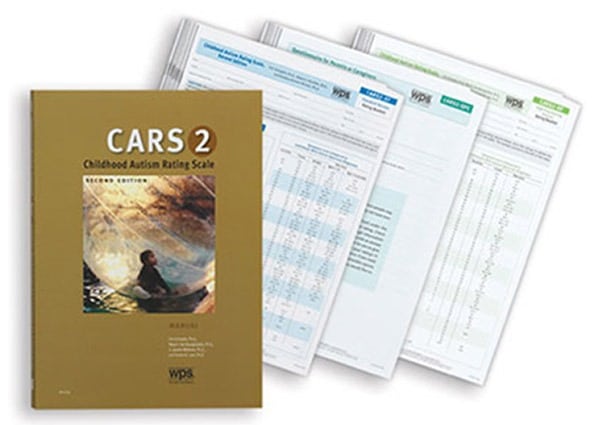
9. Diagnostic Interview for Social Communication and Interaction Disorder- DISCO-II
The Diagnostic Interview for Social and Communication Disorders (DISCO) is a semi-structured interview schedule used with the parent or carer of an individual to elicit a broad picture of the individual’s behaviors and needs. Its primary purpose is to elicit information relevant to the autistic spectrum in order to assist clinicians in their judgment of an individual’s level of development, disabilities, and specific needs.

10. Conners Rating Scale for Attention Deficit Disorder
The Conners Comprehensive Behavior Rating Scale is used to better understand certain behavioral, social, and academic issues in children between 6 and 18 years old. It is often used to help diagnose attention deficit hyperactivity disorder (ADHD).
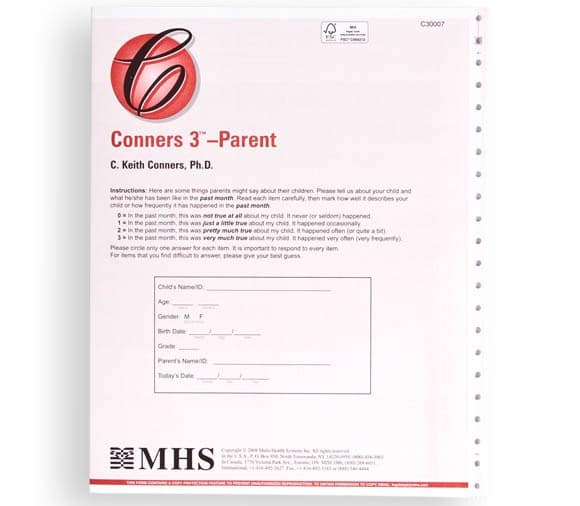
11. Autism Diagnostic Observation Schedule (ADOS)
Autism Diagnostic Observation Schedule (ADOS) is a play based assessment for the diagnosis of Autism Spectrum Disorder.
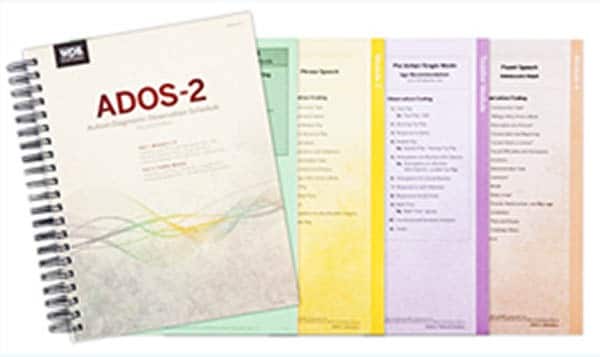
12. Autism Diagnostic Interview (ADI-R)
The Autism Diagnostic Interview (ADI-R) is a semi-structured interview schedule used with the parent or carer of an individual for the diagnosis of autism spectrum disorder.
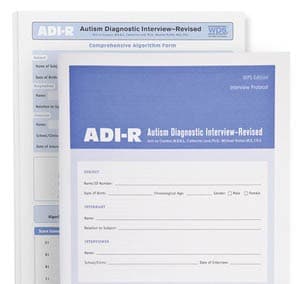
13. The Test of Variables of Attention (T.O.V.A.®)
An FDA-cleared, computerized, and objective measure of attention and inhibitory control normed by gender for ages 4 to 80+.
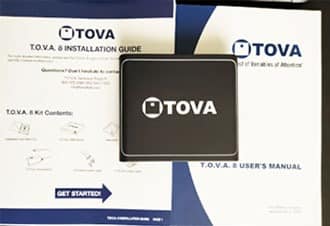
14. Griffiths III is the latest edition of the Griffiths Mental Development Scales (GMDS)
Griffiths III is the latest edition of the Griffiths Mental Development Scales (GMDS) – described as the ‘gold standard’ in child development testing and is a comprehensive, child-friendly developmental measure for continuous use from birth to 6 years (72 months).
